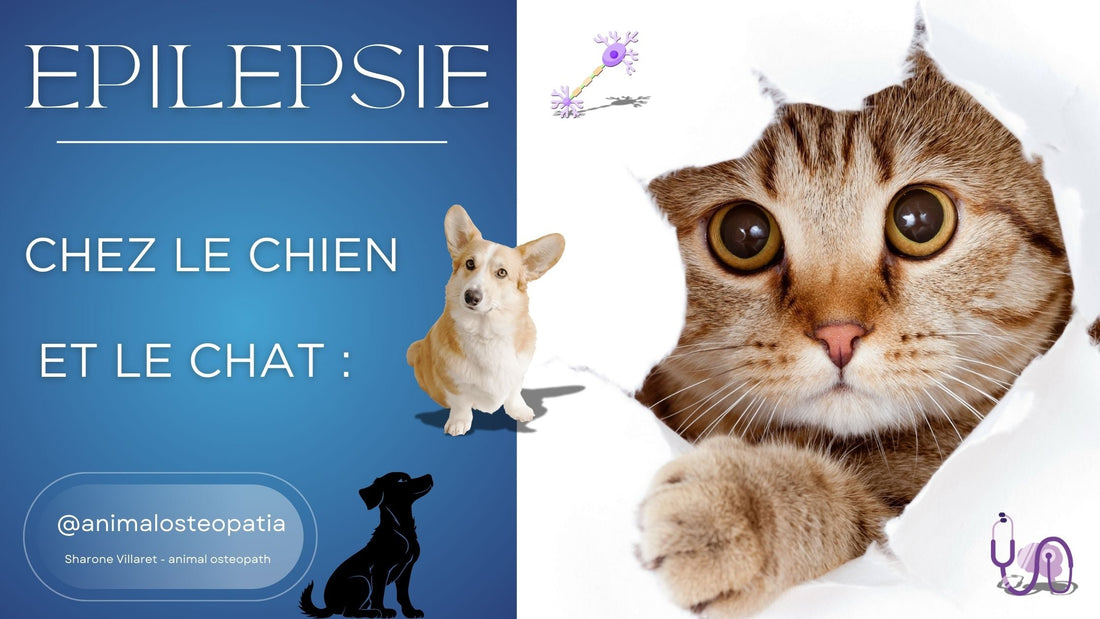What is epilepsy?
Epilepsy is a chronic neurological condition characterized by recurrent seizures. It may be idiopathic (without a specific cause, often genetic) or secondary to an underlying pathology (tumor, trauma, poisoning, metabolic disease).

Clinical signs and types of seizures
Seizures can vary in intensity and duration, lasting from a few seconds to several minutes. The most common signs include:
- Loss of consciousness
- Tremors or convulsions
- Hypersalivation
- Abnormal limb movements
- Loss of urinary or fecal control
- Changes in behavior before and after the crisis (disorientation, anxiety, aggression, intense fatigue)
Diagnosis of epilepsy
The diagnosis of epilepsy is based on:
- A clinical and neurological examination by the veterinarian.
- Blood tests to rule out metabolic causes.
- An MRI or brain scan if a structural cause is suspected.
Crisis treatment and management
Drug treatment
Conventional treatments include antiepileptics such as phenobarbital, imepitoin, or potassium bromide. These drugs help reduce the frequency and intensity of seizures, but do not completely eliminate the condition.
Adapted diet
Diet plays a crucial role in epilepsy management. A diet rich in omega-3 fatty acids and low in carbohydrates helps reduce neuronal inflammation and stabilize brain activity. A ketogenic diet (high in fat, low in carbohydrates) has shown positive effects on seizures in some animals.
Osteopathy and holistic care
Animal osteopathy is an excellent complement for epilepsy management. By addressing craniosacral tension and nerve dysfunction, osteopathy can help:
- Improve cerebral circulation
- Reduce muscle and nervous tension
- Regulate the autonomic nervous system
Advice for owners
- Keep a seizure diary (duration, intensity, frequency, triggers)
- Ensure a calm and secure environment to limit stress
- Do not interrupt a seizure (leave the animal in a safe place and monitor it, avoid talking to it or touching it so as not to overstimulate the nervous system and complicate the seizure)
- Maintain regular follow-up with the veterinarian and osteopath
- Make an appointment by clicking here for your dog or cat at the practice in Portugal.
Conclusion
Epilepsy in dogs and cats is a complex condition that requires a multidisciplinary approach. By combining appropriate treatment, a specific diet, and osteopathic care, it is possible to significantly improve the animal's quality of life and reduce the impact of epileptic seizures.

